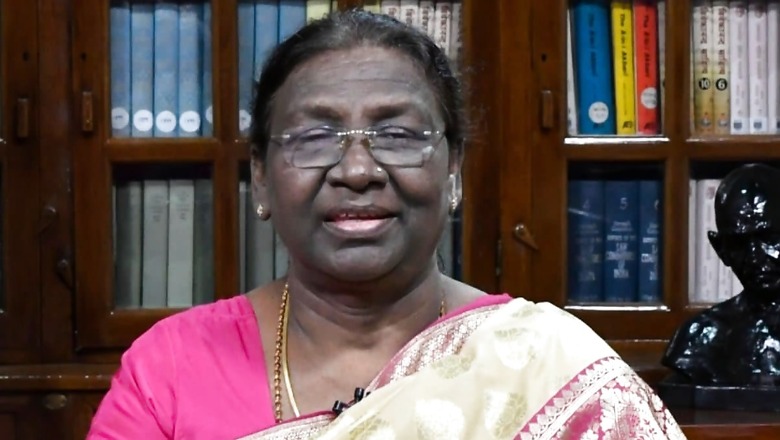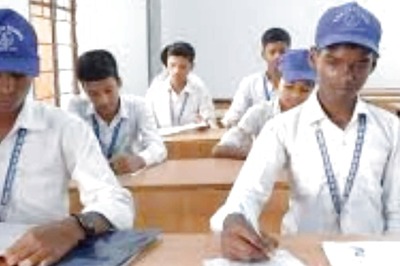
views
President Droupadi Murmu on Tuesday said India’s law on the protection of plant varieties and farmers’ rights can be emulated for the entire world, as it gains importance amid the challenges of climate change.
Addressing the first-ever global symposium on farmers’ rights at the Pusa complex in the national capital, the President said India took the lead in bringing the Protection of Plant Varieties and Farmers Rights Act (PPVFR) way back in 2001, which is aligned to the International Treaty on Plant Genetic Resources for Food and Agriculture to protect farmers.
Under the PPVFR Act, India provides a range of rights to farmers that include use, reuse, save, share and sell the unbranded seeds of a registered variety. Besides, farmers can register their own varieties which get protection, she said.
The President said, “Such an Act can serve as an excellent model worthy of emulation for the entire world.” This also gains importance amid challenges posed by climate change and also to fulfill the Sustainable Development Goals of the United Nations, she added.
Stating that the challenges of climate change have put an onus on the conservation of traditional farmers’ varieties, Murmu said the varieties including millets are not only endowed with inherent tolerance to various stresses on the ecosystem but also hold nutritional profiles that could be key in providing a solution to the food and health requirements of a large population.
The declaration of the year 2023 as the Year of Millets by the UN is a step in this direction, she said.
The President also inaugurated the Plant Authority Bhawan and an online portal for processing registration of plant varieties. She also conferred plant genetic savior awards to six farmer communities and 20 individual farmers.
The four-day symposium from September 12-15, being held for the first time since the adoption of the International Treaty on Plant Genetic Resources for Food and Agriculture in 2001, is expected to have a participation of around 500 delegates including farmers from India and abroad.
Speaking about the International Treaty on Plant Genetic Resources for Food and Agriculture, the President said it is one of the most important international agreements among member countries to conserve, use, and manage plant genetic resources for food and agriculture.
For the first time, the Treaty talked about guaranteeing food security through conservation, exchange, and sustainable use of the world’s plant genetic resources for food and resources, she said.
Highlighting India’s rich biodiversity, Murmu said this has been a treasure trove for the global community at large as the country with only 2.4 per cent of the world’s land area accounts for 7-8 per cent of recorded species of plants and animals.
“Our farmers have toiled and enterprisingly conserved local varieties of plants, domesticated wild plants, and nurtured traditional varieties that have provided the building blocks for different breeding programmes. This has ensured food and nutritional security for human beings and animals,” she said.
Efforts of biodiversity conservers and industrious farmers, scientists and policymakers coupled with government support have played a key role in giving filip to multiple agricultural revolutions in the country, she said.
“…in the raging debate of food sovereignty versus food security, I firmly believe that technology and science can serve as an effective protector and enhancer of heritage knowledge,” she noted.
The President also mentioned that the first-ever symposium will provide a golden opportunity for the world to realign its priorities and programmes according to the needs of humanity and to make common commitments.
Speaking on the occasion, Agriculture Minister Narendra Singh Tomar said since the enactment of the PPVFR Act, the government has worked diligently to ensure the compliance of the provisions of the law.
He said challenges, however, remain despite positive progress made in conserving plant diversity.
Ensuring effective implementation of plant variety rights, especially for traditional and indigenous crops, is important.
Public awareness campaigns and capacity-building initiatives can increase understanding among farmers and breeders about their rights and responsibilities, he added.
Stating that the government understands the challenges faced by farmers, Tomar said it is dedicated to providing farmers with the tools, resources, and legal protection they need to secure their livelihoods and preserve their traditional knowledge.
Minister of State for Agriculture Kailash Choudhary, Agriculture Secretary Manoj Ahuja, ICAR Director General Himanshu Pathak, PPVFRA Chairperson Trilochan Mohapatra, FAO representative to India Takayuki Hagiwara were present during the event.
The symposium is jointly organized by the United Nations Food and Agriculture Organisation (FAO), the Secretariat of the International Treaty on Plant Genetic Resources for Food and Agriculture, and the Government of India.



















Comments
0 comment